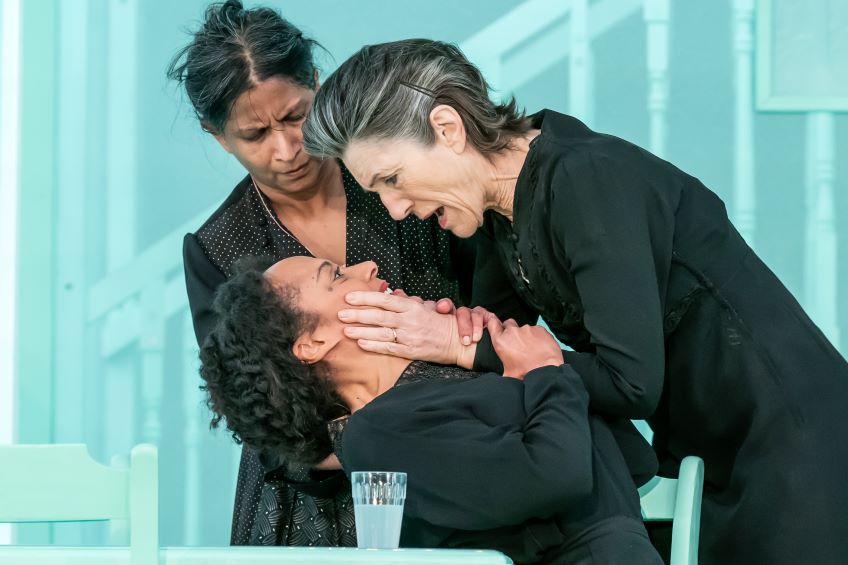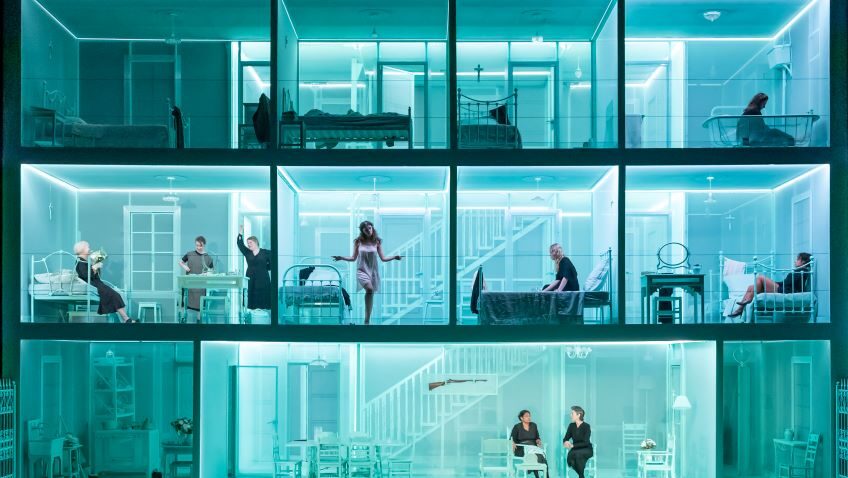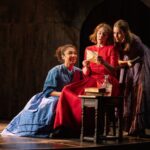Rebecca Frecknall’s production of Frederico Garcia Lorca’s play is radical and expressionistic. The set, designed by Merle Hensel, is a huge doll’s house on three floors, open and white and drained of any Spanish colour. The eight bedrooms look like cells and they and the living area are filled with the all-female cast in sharp black silhouette and all talking at the same time, their over-lapping dialogue making it difficult to understand what they are saying.
Lorca completed The House of Bernarda Alba, one of the great plays of the 20th century, one month before the Spanish Civil War began in 1936, the same year that he was murdered for his Republican sympathies and his homosexuality. It was not produced until 1945 and then in Buenos Aires. It was not premiered in Spain until 1964.
Lorca’s drama is a harshly realistic “photographic documentary” (Lorca’s own phrase) of women in the poorest part of rural Andalusia, where “the worst punishment is to be born a woman.”
The peasant class lives in a society where the women are ranked below land and oxen and are there only to satisfy the sexual demands of their husbands and to raise male children. Women, who lose their virginity outside of marriage, pay a heavy price – killed either by their parents or stoned to death by the villagers.

Bernarda Alba, a tyrannical mother, expects her five daughters to mourn their dead father for eight years. Locked up, rotting away, sexually frustrated, they are deeply resentful that the eldest, 39-year-old, is going to marry a 25-year-old man, who doesn’t love her. He loves her only for her recently inherited money and is having sex with the youngest daughter.
A loveless marriage is better than no marriage at all. Harriet Walter is cast as the monster matriarch, who behaves like a warden in a women’s prison or, given the political context in 1936, like a dictator in a repressive fascist regime. The house is gated against the patriarchal world outside. No man is allowed inside the compound.
Frecknall’s production builds to a powerful climax. The women’s fury is uncontrollable. Alice Birch’s translation, expletive driven and delivered hysterically loud to the point of screaming, uses the vulgar F-word too often and it jars every time.
To learn more about Robert Tanitch and his reviews, click here to go to his website. 




